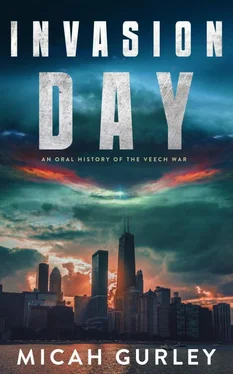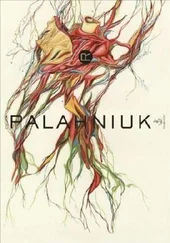Many workers from South America simply didn’t show up on time, often coming to work a n hour late, something that drove my fellow Asians to the breaking point. (Laughs.)Yes, we humans can be challenging.
How did we pay for all that?
I was not involved in those negotiations but I’ll tell you what I know. I know we traded massive stocks of precious metals: gold, silver, copper and more but I don’t believe they hold the same value to the universe. I might be wrong on that, but that’s the impression I was given. I also know, we raised a lot of money through alien collectors.
Collectors?
Yes, apparently, some races are very similar to us in their collection of history and art, things of that sort. The Jhi put out a call to interested parties, and soon we had quite a few of them visiting. I believe we gave the history and value of the various pieces to the aliens, then a price was discussed. I can’t speak for other countries, but I know Singapore Art Museum donated many pieces to the cause. They now sit in an alien’s collection somewhere. One of the most unusual exchanges was a collector who found the world’s largest shoes and had to have them. (She covers a smile on her face.)There were strange things from cars to historical pieces, but I don’t know the particulars for any of them.
Personnel was a difficult problem, but our biggest obstacle was logistics. While space mining was spoken of and argued for, it was only in the planning stage. They pushed to begin as fast as possible. To build the station, we had to get all of our materials from Earth. Lift. We didn’t have enough lift. The dilemma came down to the allocation of resources. We needed large shuttles to ramp up production and bring materials from Earth, but the armies of Earth required interceptors to fight the Veech. We couldn’t have both.
Initially, we only had one shuttle, which we used for everything. That’s why it took so long to get the first living space built. The second shuttle didn’t arrive for another six months. During this time, the Jhi were the only alien representative in our solar system due to the threat of the Veech. This changed later, but while they were our only trading patners, we had to pay exorbitant prices for spacecraft. When the war officially ended for many countries, we had only two in service. We did the best we could, but it slowed us down.
The early days of the station were difficult. We didn’t know if or when the Veech would show up, and we had no defense. Our interceptors could have made the trip, but it would have been counterproductive due to several issues. It took us six months to build our first deck. Things changed after that. I won’t be as arrogant to say we could hold off an attack, but it was a beginning.
It’s been seven years since the war ended on Earth, and for most practical purposes, Phoenix Station is complete. We are continually updating systems and implementing newer technology, but we planned for that. Phoenix Station will be dwarved by the new space docks being built in ten more years, but not yet. For right now, Phoenix reigns supreme.
Phoenix Station
Fixed Geo Orbit
I’m sitting in Mess Hall 2 in the Phoenix Space Station. Mess Hall 2 is a massive 20,000 square foot room, located on deck 6. The floor plan is open, with mundane metal tables and chairs placed squarely around the room. It looks much like any large cafeteria, except for the number of small trees lining every wall. Another noticeable feature is the low ceiling everywhere except for an inverted diamond shape in the middle of the room.
Members of the TSC and civilian contractors move through the mess hall, eating, chatting, or just passing through. The man I’m meeting, Bin Anuwat, is a civilian contractor from Thailand. Bin is a short, thin man of infectious energy who is immensely popular with the sailors of the TSC.
I’m from a small island, Koh Mak, which is in the south of Thailand. The island is gorgeous, with crystal-white water and some fantastic seafood. I grew up poor, though I didn’t know it. Most of the other locals were all the same as us. My father was a fisherman, and my mother sold fruit to the mainland. I went to school with thirty or so others that I had known my whole life. It was a nice, quiet life.
When I was in my twenties, tourists started visiting the island to get away from more touristy sites. At first, there weren’t many of them, and we were glad to see them because they spent money so easily. A few years later, they started showing up by the thousands, and our economy completely changed to provide for them. It was fun. I became a dive guide while my family opened a restaurant. I had to work there also.
Then the aliens came. We were lucky. We never saw an alien, never even saw a ship fly by. However, all tourism disappeared, as you might guess. It didn’t affect us too badly because most families had saved their money, but there wasn’t much work to do all of a sudden. I started fishing with my father while also becoming part of the local militia. (Laughs.)It wasn’t much of a militia. There were only five of us, and we didn’t even have a gun between us. We just were lookouts, in case we saw any aliens coming.
After the war, things started to return to normal, a little. A few tourists showed up, some on shuttles that would land right on the beach. Amazing! But so many people had been killed that we knew it wouldn’t return to what it was for many years.
One day, maybe three years after the war ended, a shuttle landed on the beach. It was very shiny and quiet. Because my English was one of the best, I was sent as the welcoming party. It was a businessman who worked for some rocket company. Nice guy. He stayed for a few days and then left. But while he was there, he told me about the jobs that were available in space. The very thought of it excited me. I told my parents, and my mom forbade it immediately, but my father gave me his blessing. He would often look at the stars, and I think he gave his dream to me.
I wrote an email, had multiple interviews, and got accepted. It was very easy. I traveled to Chiang Mai, then to a TSC training school in Melbourne, Australia, where I became a cook. The school was six months long and was much more than preparing food and cooking. We had classes in fire suppression, equipment familiarization, battle station drills, and English classes for those who needed it.
Procedures! So many procedures for everything and we had to learn them all until we could remember them in our sleep. Those kinds of things were new to me. We didn’t have any procedures on my island, not even for diving. It’s okay, though, because school was fun also. We had mixers, competitions in our fields, and physical education games. We were required to participate, but still, everyone enjoyed it. I met people from all over the world, not just Asians, and learned to cook in many interesting ways and with many new foods. Yes, it was exhilarating.
Then I came to space. We boarded a shuttle, much like the ones that visited my island. There were about fifty people from my school. The trip took a few hours. I never felt any turbulance or anything at all really. It was like we were sitting in a plane that wasn’t moving. Until we were in space, then I felt myself rise out of the seat. The seatbelt caught me, but we laughed and giggled like children. The co-pilot laughed with us but told us to keep the seatbelts on. They were very lovely people.
We went through a few days of orientation, which included a tour of the space station—not every part, but many of them. This place is quite large. In my head, before I came, I thought “how big can it be,” but I was wrong. It’s huge, like a city. It has everything: theaters, shops, gardens, family housing, schools, and even some recreation spaces in Zero G. Of course, the military side is off-limits to me, but that’s okay.
Читать дальше












